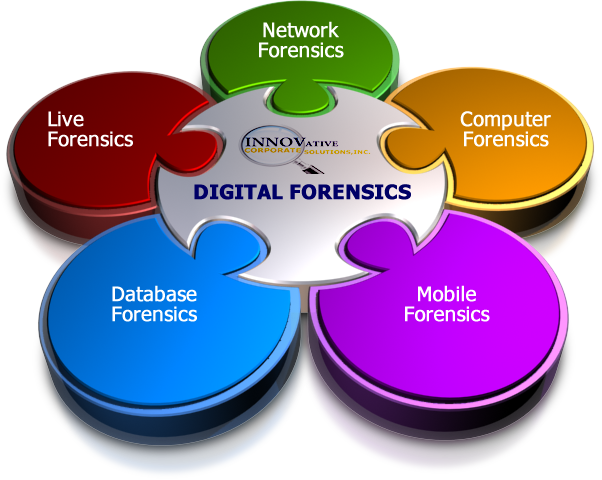Digital forensics is a new science and its international developing process has become more and more important in recent years. Since the explosion of technology led to more and more data storage and information preservation, and now, pretty much everybody has a smartphone and/or a computer, the the number of cyber crimes has increased dramatically – but so has the possibility to incriminate someone with help from the digital data storage.
As a result, digital forensic science has become a more and more streamlined area, and the field has met multiple attempts in being standardized and internationally agreed on. Eventually this happened, and over 40 states signed the treaty during the 2000s. The technology acumen and the information level has also improved, as the general interest for the field developed.

Training programs and certifications required in digital forensics
The junior workers in the field have to complete at least a two year long degree as well as practical work experience in cyber security, in order to be eligible to perform any type of activity in the field. After these requirements have been completed, the future forensic specialist is allowed to move in what direction he wants. If the initial specialization is in law enforcement and the general background covers the legal area, the procedure that should be followed includes training in order to be eligible on an entry position in the field.
Since this is a highly skill-intensive and highly appreciate line of work, programs offer fellowships, collaborations, internships and volunteering opportunities, which will eventually count as work experience, a start of a sustainable career development. In order to further occupy a specific position in the field a master degree will be necessary, thus assuring other two years of continuous knowledge improvement, as the level of know-how is highly important in assuring the necessary expertise to perform certain activities as a professional, such as the analysis process during a digital investigation.
Another requirement besides great memory, analytical and adaptability is proficient legal framework background in order to successfully perform these kinds of services to qualify a suspect as being guilty or innocent in court. Basically, you need to know what you can and can’t do, and what does and does not qualify as a crime.
While the agreement regulating this work force sector in the United States of America is the , the professionalism leverage is constantly monitored by the , organization offering all kinds of volunteering and internship opportunities for the apprentices in the field, as well as career enhancing tools such as free access to an important national digital library. The privilege to practice in the scientific area before having finished obtaining all the necessary degrees is another very important decision that a student should make, as it is complementary to the theoretical knowledge. A number of hours (differing from a state to another) of practical experience is needed for any kind of employment, even on an entry position. Gathering both the knowledge and the practical skills necessary to make a great forensic practitioner is essential to be done at the same time in order to corroborate the information from two distinct sides.

Jobs and hiring opportunities in digital forensics
The number of professionals hired in the digital forensic fied during the 5 years is 154 per cent higher than it was in 2007, not only is the field growing to keep up with technology, but that more and more law enforcement agencies are looking for experts to perform either research or analysis in the field. These agencies have to constantly adapt and improve their digital forensic team to cope the continuously increasing number of cases in need of digital forensic services. Identification, recovery, analysis and location of digital forensic evidence requires a high level of predispositions as well as very specific knowledge for a technical proficiency level of such a job description to be fulfilled.
But it is not just the law enforcement agencies which can give you a job, but some national, regional and local institutions as well, such as the Department of Security in every state of the U.S.
In order to have the minimum guarantee of success in the field it’s recommended that the to graduate an accredited college, as well as a university, higher education being necessary, but not sufficient for a sustainable career development. It’s the hands-on training and the practical knowledge that make you a good digital forensics.
One of the basic requirements of the interns, students as well as practitioners altogether is to maintain the legal and technical, digital knowledge on a proficient, actual, current level – as technology develops, you have to develop too. Surely, networking as student during the practice years before the actual scientific responsibilities may help enrich the general background in both legal and technological fields, thus helping to a more rapid career development. It takes commitment to constantly stay informed in such an activity field, reason for which an intern who discovers that either digital information or law are not his passion, the most adequate thing to be done is a professional reorientation.

Digital forensics salary
The advice of the , one of the leading recruiting companies, for anyone who wishes to work in the field is to start the internship and volunteering in in order to gain valuable experience that will further help in building a solid career. Also, applying on an entry position is something that the specialists in the field would recommend not to be done if there’s any volunteering experience available to be taken into consideration following the hiring criteria, since the entry level employees are poorly paid compared to the number of hours they have to work per day, the social sacrifices they have to make (sometimes analyzing a case may get to giving up social life as a sacrifice, in return for work dedication) and the quantity of tasks they have to fulfill.
On the other hand, the average salary for a job in digital forensics in the United States of America is $89, 000 a year, which makes the entire experience worth it. Of course, when you enter the line it will be somewhat lower, but it can grow very, very much – and unlike other lines of work, if you’re really good, promotion is much easier.


